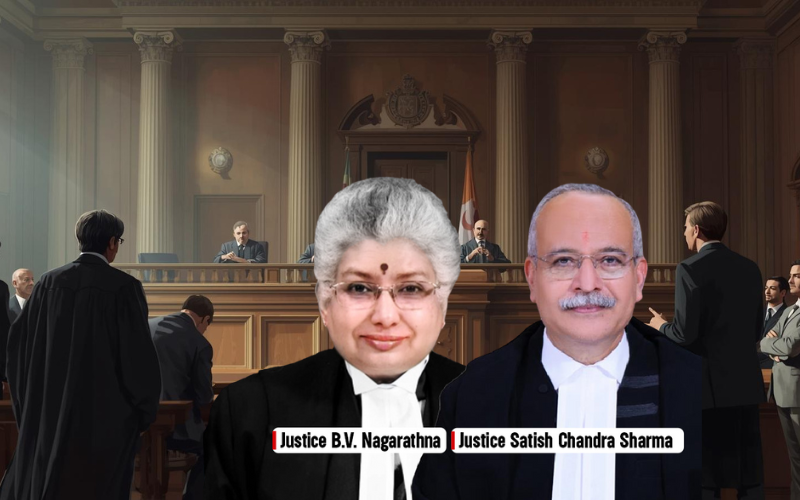Balancing Privacy and Fair Trial: A Landmark Judgment Interprets Spousal Privilege under Indian Evidence Law
In a significant ruling, the Supreme Court of India addressed the complex interplay between the right to privacy and the admissibility of secretly recorded conversations between spouses in matrimonial disputes. This decision provides clarity on the application of Section 122 of the Indian Evidence Act, 1872, concerning spousal privilege, and the exceptions that allow for the admission of such evidence in court.
Background of the Case
The case involved a matrimonial dispute between Vibhor Garg (Appellant) and Neha (Respondent), where the appellant sought to admit secretly recorded conversations as evidence in divorce proceedings. The recordings, stored on memory cards and compact discs, were claimed to demonstrate marital discord and were pivotal to proving allegations of cruelty.
Initially, the Family Court allowed the admission of these recordings, citing their relevance to the proceedings and the provisions of the Family Courts Act, 1984, which relaxes strict rules of evidence. However, the High Court of Punjab and Haryana overturned this decision, emphasizing the respondent's right to privacy and deeming the recordings inadmissible.
Supreme Court's Analysis
The Supreme Court, in its judgment, meticulously dissected Section 122 of the Indian Evidence Act, which generally protects communications between spouses from being disclosed in court. However, the Court highlighted the exceptions within the section, particularly in suits between married persons, which permit such disclosures.
1. Admissibility of Secretly Recorded Conversations: The Court affirmed that electronic records, such as secretly recorded conversations, are admissible if they meet the criteria of relevance, authenticity, and accuracy, as outlined in Sections 65A and 65B of the Evidence Act. The Court underscored the importance of these recordings as critical evidence in matrimonial disputes, where direct evidence may often be scarce.
2. Right to Privacy vs. Right to Fair Trial: While acknowledging the right to privacy under Article 21 of the Constitution, the Court emphasized that this right is not absolute. In the context of matrimonial proceedings, the right to a fair trial, which includes the right to present relevant evidence, can outweigh privacy concerns. The Court noted that the exception in Section 122 itself serves to balance these competing rights by allowing disclosure in matrimonial disputes.
3. Technological Advancements and Evidence: The judgment recognized the evolving nature of evidence in the digital age. It noted that modern technology provides new avenues for evidence collection, and courts must be open to considering such evidence to ensure justice. The emphasis was on using technology to recreate events and substantiate claims in court, rather than excluding valuable evidence on privacy grounds alone.
Implications of the Judgment
This landmark ruling sets a precedent for the admissibility of secretly recorded conversations in matrimonial disputes, offering guidance on navigating the delicate balance between individual privacy and the necessity of a fair trial. It underscores the judiciary's willingness to adapt to technological advancements in evidence collection while maintaining the sanctity of marital communications, except where legal exceptions apply.
The decision also prompts a re-evaluation of privacy concerns within the framework of matrimonial law, urging courts to exercise caution and diligence in admitting such evidence. This judgment is a pivotal step in harmonizing the principles of privacy, evidence, and justice in India's legal landscape.
Vibhor Garg v. Neha, (SC) : Law Finder Doc Id # 2750446




